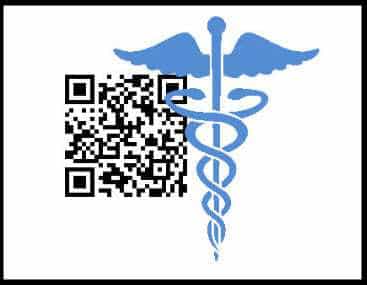The barcodes will be used to help share medical data with firefighters.
Firefighters in Marin County, California, are testing out a new program that uses QR codes to help to make sure that first responders have rapid and easy access to vital medical information in a rescue situation.
These emergency workers know that in some situations, this data can mean the difference between life and death.
Across the Golden Gate Bridge from San Francisco, this county’s fire department began looking into the design of a program that would incorporate QR codes and that could be piloted over a year in an attempt to help to provide an enhanced safety experience for residents. This involved providing those residents with stickers that feature a unique barcode that links to a secure personal online health profile.
The program using the QR codes was developed through a partnership with Lifesquare.
Lifesquare is a Menlo Park, California based startup company. Marin County is now distributing the stickers featuring the QR codes for free. They allow a mobile device carried by the emergency responders to be able to scan the quick response code and view the online medical profile of the resident. There were already approximately 1,100 residents who had enrolled in the program by August, 2012.
According to the emergency medical services battalion chief in Marin County, Mike Giannini, “We’ve utilized the Lifesquare technology, and it has worked well”. He added that “We’ve been able to get patient information and use it to our advantage.”
Though QR codes aren’t yet widely used in the medical industry, mobile health (mhealth) is a rapidly growing sector, and the barcodes are certainly defining their place within it. This new program in Marin County will likely be an important part of that growth, as the success of the pilot could make this type of effort highly appealing to other counties, as well.
To participate, residents of Marin County can obtain free QR codes and can create an account on the Lifesquare website, free of charge, that includes all of their essential medical data, such as the medications they take, conditions they have, allergies, and emergency contacts. They can include as much or as little health information as they want.

